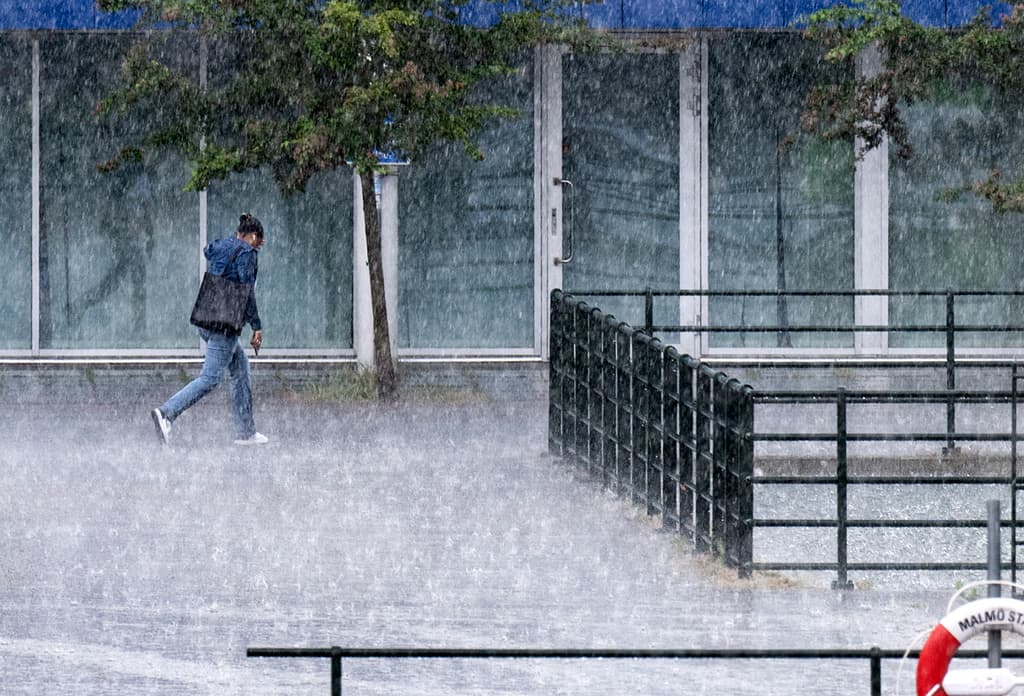The heavy rain season is here. July and August are the months when the most intense rainfall usually occurs. This is how you can prepare to avoid being affected.
Heavy rain often leads to flooding because the water does not have time to drain away. In the event of an alarm, the rescue service must prioritize life, health, and socially critical activities, according to the Swedish Agency for Emergency Management. You must therefore secure your own home – as help cannot be guaranteed.
Preparation before a heavy rain:
1. Remove valuable items
Move valuable items away from basements, garages, ground floors, or plots. If you still want to keep items in the basement – place them high up. Do not store anything directly on the floor. Move electrical appliances to higher floors in the house.
2. Make a plan
Create an evacuation plan and decide what you need to take with you and where you should go. Have a plan to move your car to a high location before the water reaches the road. Moving your car later can be dangerous.
3. Check your insurance
Make sure your home insurance covers flood damage. Take pictures of the rooms in your house to show the insurance company.
4. Check the property
If you own a property – check the pipes, drainage, and downspouts. Have a shut-off floor drain and back valves on the sewage system. Seal basement windows and build a temporary barrier of sand or earth. Turn off the power with the main circuit breaker.
5. Talk to your neighbors
Keep in touch with your neighbors and help each other. Make sure your mobile phone is fully charged.
During a heavy rain:
6. Avoid water
Avoid walking or driving through flooded areas. It can take just half a meter of flowing water to sweep you or your car away.
7. Choose a high location
Stay in a high place where you can be rescued by emergency services if you cannot leave your location. In an emergency, call 112.
After a heavy rain:
8. Contact immediately
Contact your insurance company as soon as possible. Make a list of the damages and document everything carefully by taking photos and filming.
9. Ask an electrician
Ask an electrician to check if it is safe to turn on the power if you have had water in your home.
10. Check the water
Tap water can be contaminated with bacteria during a flood. Check with your municipality if the tap water is drinkable. If you have a private well, you need to check if the water is affected.
11. Ventilate
Ventilate the moisture by opening windows and doors.
12. Be cautious
Your home may be undermined with a risk of collapse.






